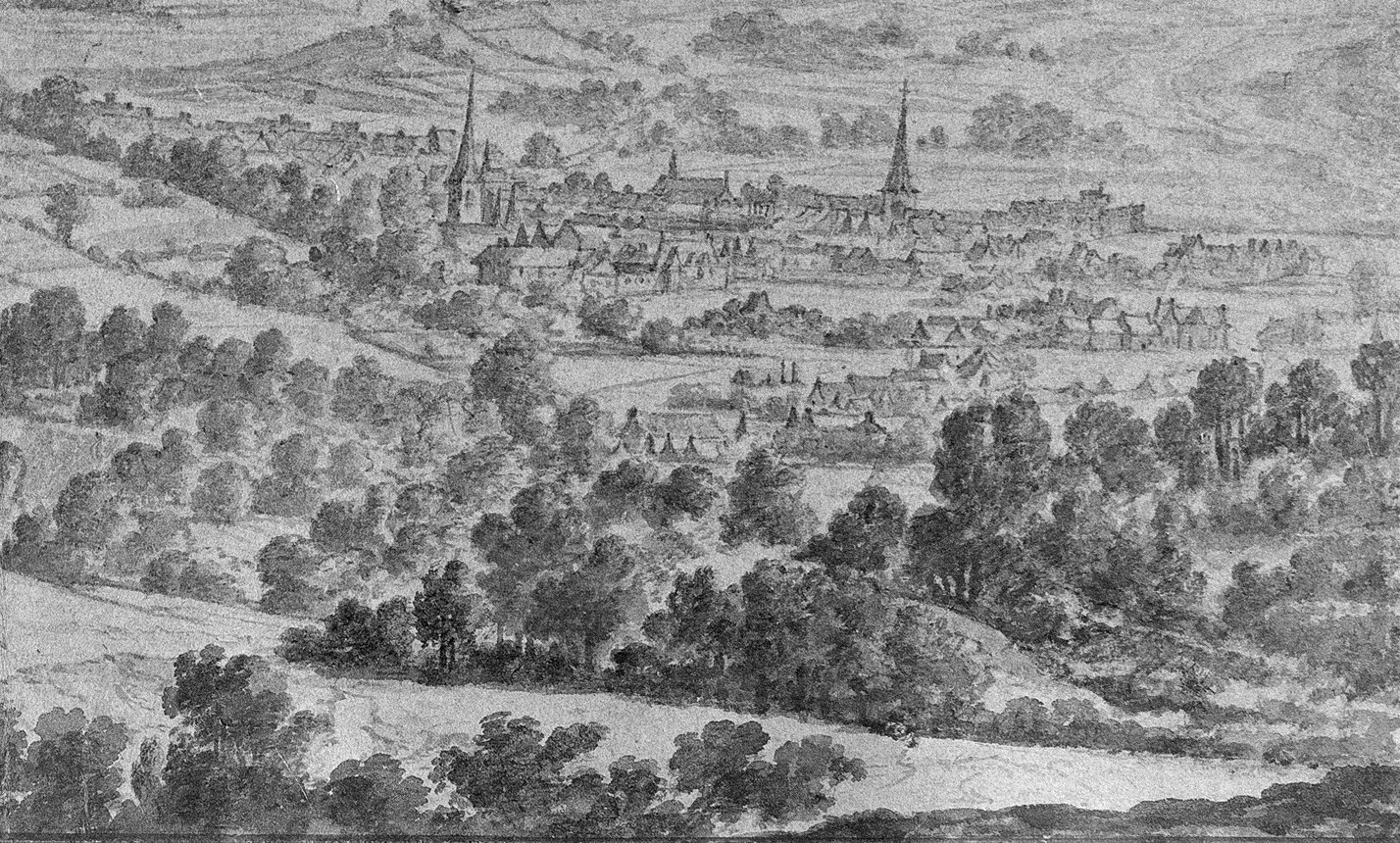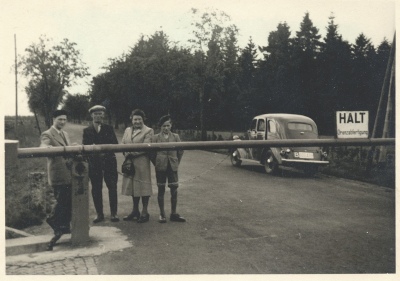In education, the ability to set boundaries is a must. Parents and educators are not the only ones who understand this; sometimes the state authorities understand it just as well and regulate border traffic. Crossing borders then only happens with permission, according to regulations and testing, or it is punished.
The older population in particular knows about this. In 1920, a new Belgian-German border was established not far from where they lived. Although this border was shifted elsewhere between 1940 and 1944, it was officially re-established in 1945. Its course changed once again when the Allied border committee granted Belgium its own military administrative zone on the German side – so-called Bollenien: Major General Paul Bolle was in charge here between 1949 and 1958.
The new administrative district ‘Bollenien’ received new customs crossings. One of these was the one on Miescheider Heide, which – as had been the case since 1920 – could only be crossed upon presentation of a visa or passport. The authorities occasionally made it easier for those who came to watch the races in Spa-Francorchamps or for groups of pilgrims. However, in newly found Western Europe, which stood for peace, more and more people felt compulsory passports to be an anachronism and annoyance.
The International Eifel-Ardennes Association saw it the same way. Its Belgian, Luxembourgish, French and German representatives agreed in Kronenburg, in April 1956, to abolish this formality, among other things. The Foreign Ministry respected the decision. From 5 August 1956, only an identity card was needed to cross the common borders. ‘Regional cooperation was described as the best way to achieve the goal of a united Europe,’ the Grenz-Echo summed up (1).
On a small scale, successful steps are often taken long before the big ones follow. In 1959, tour operators still complained about the reluctance of European countries, and even stigmatised the ‘passport’ as a ‘document of police mistrust’, declaring: ‘Tourism is the daughter of hospitality, (…) the foreigner abroad is not an object of exploitation. One should receive him like a guest, a friend, and make the foreign country his second home.’ (2)
We do not know whether the people in the picture, whose car has already around around, felt the same way. But they too had relatives in Germany. The courtesy of ferrying their guest back had to end here at the border when the picture was taken, because the ‘Kronenburg Resolution’ had not yet been an issue. In any case, when Father Rupp celebrated his 61st birthday, and, in 1999, his golden jubilee as a priest, none of the invitees from the Belgian Eifel thought any more about stopping for border clearance.
Alfred Rauw
From ZVS, 2019/04, pp. 89-90.
(1) Grenz-Echo, 10/04/1956
(2) Malmedy-St. Vither Volkszeitung, 16/07/1959

